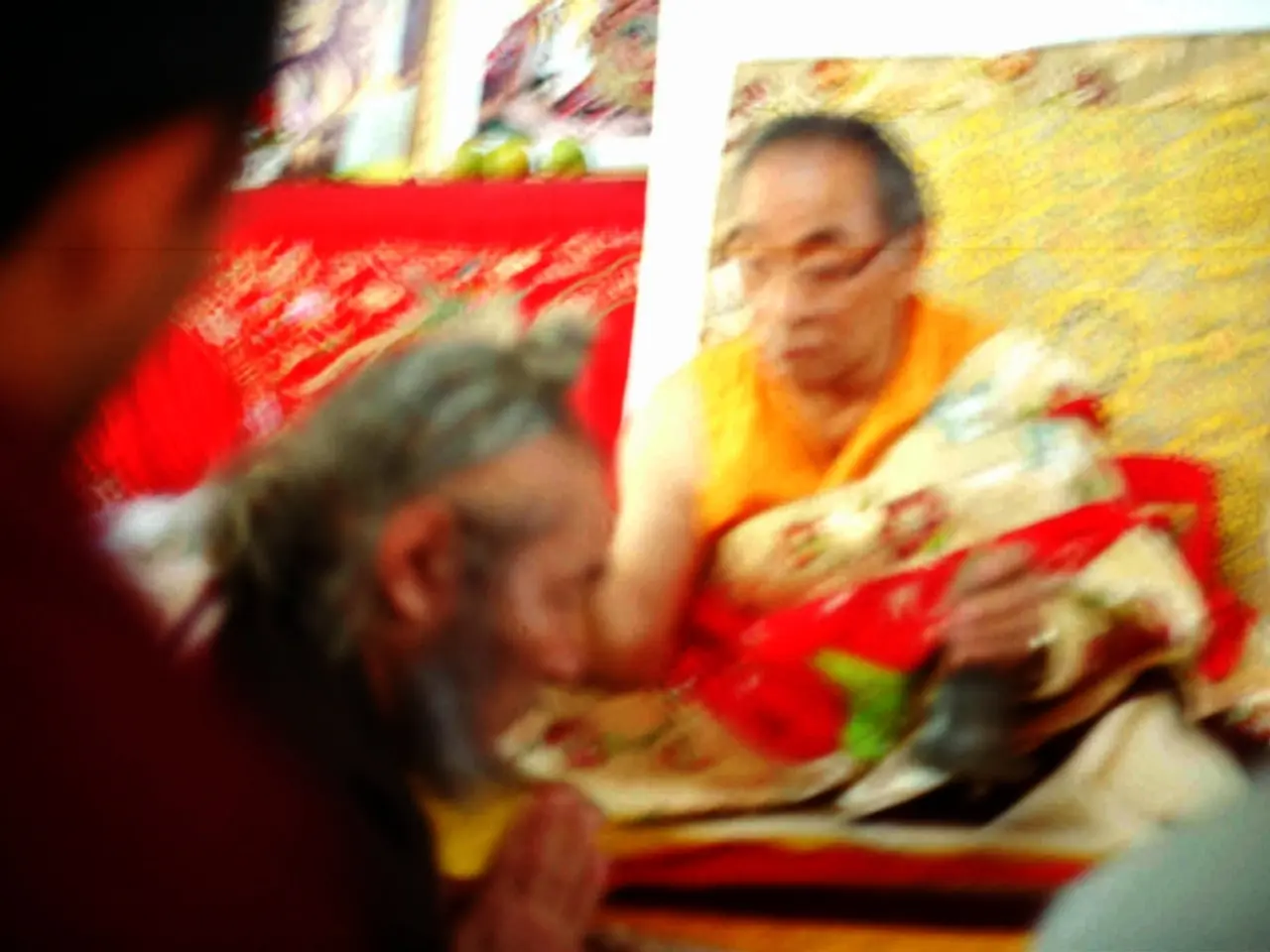Exploring the secret formula for happiness: Insights on joy, empathy, and life's meaning as disclosed by the Dalai Lama
In a world often consumed by chaos and uncertainty, the Dalai Lama offers a beacon of hope, advocating for specific mental and spiritual practices that can lead to happiness and inner peace. Central to his teachings are compassion, mindfulness, and altruism.
The Dalai Lama believes that happiness arises from training the mind through compassion—both for oneself and others—and cultivating positive emotions such as kindness, gratitude, and emotional balance. One of the key practices he emphasizes is compassion, which he sees as a fundamental means to bring happiness to others and oneself. By shifting focus from self-centeredness to other-centeredness, happiness grows.
Cultivating a calm and balanced mind is another crucial aspect of the Dalai Lama's teachings. This involves developing self-awareness to recognize and regulate negative emotions, fostering stable, positive mental states through mindfulness.
Recognizing the interconnectedness of humanity is essential, according to the Dalai Lama. He reminds us that all humans seek happiness and wish to avoid suffering, highlighting our shared nature. By embracing this interconnectedness and acting out of altruistic concern, one builds inner strength and joy.
Happiness is regarded as a skill, comparable to physical strength, requiring regular mental "exercise" such as practicing kindness, gratitude, and focusing on what really matters—inner peace and meaningful relationships.
In his book 'The Art of Happiness', the Dalai Lama discusses these themes with American psychologist Howard Cutler. The pursuit of human happiness as a formal concept is about 70 years old, with psychologist Abraham Maslow beginning the process in the 1950s. Over the last quarter-century, happiness has become a widely discussed topic worldwide across all sections of society.
The Dalai Lama does not mention the concept of enlightenment in this context but emphasizes that true and lasting happiness is based on an awareness of the interconnectedness of all life on Earth. He compares the impact of a tiny insect to a human's potential impact on their environment, underscoring the importance of each life.
Practicing compassion is a shortcut to joy, according to the Dalai Lama. He advises wanting what one has to achieve steady and stable happiness. Mental and spiritual training, he believes, play a significant role in contributing to human happiness.
In a world where external circumstances can often seem beyond our control, the Dalai Lama's approach offers a path towards emotional stability, resilience, and a deep sense of peace that is not dependent on external factors but arises from within through conscious mental training. As he famously quotes, "If you think you are too small to make a difference, try sleeping with a mosquito."
- The Dalai Lama's teachings emphasize that cultivating compassion is a fundamental means to bring happiness to oneself and others, promoting the idea that by shifting focus from self-centeredness to other-centeredness, happiness grows.
- Recognizing the interconnectedness of humanity, a central theme in the Dalai Lama's teachings, reminds us that all humans seek happiness and wish to avoid suffering, fostering a sense of shared nature and promoting altruistic concern as a key to building inner strength and joy.
- In his approach to human happiness, the Dalai Lama suggests that happiness is regarded as a skill, comparable to physical strength, requiring regular mental "exercise" such as practicing kindness, gratitude, and focusing on what really matters—inner peace and meaningful relationships.




